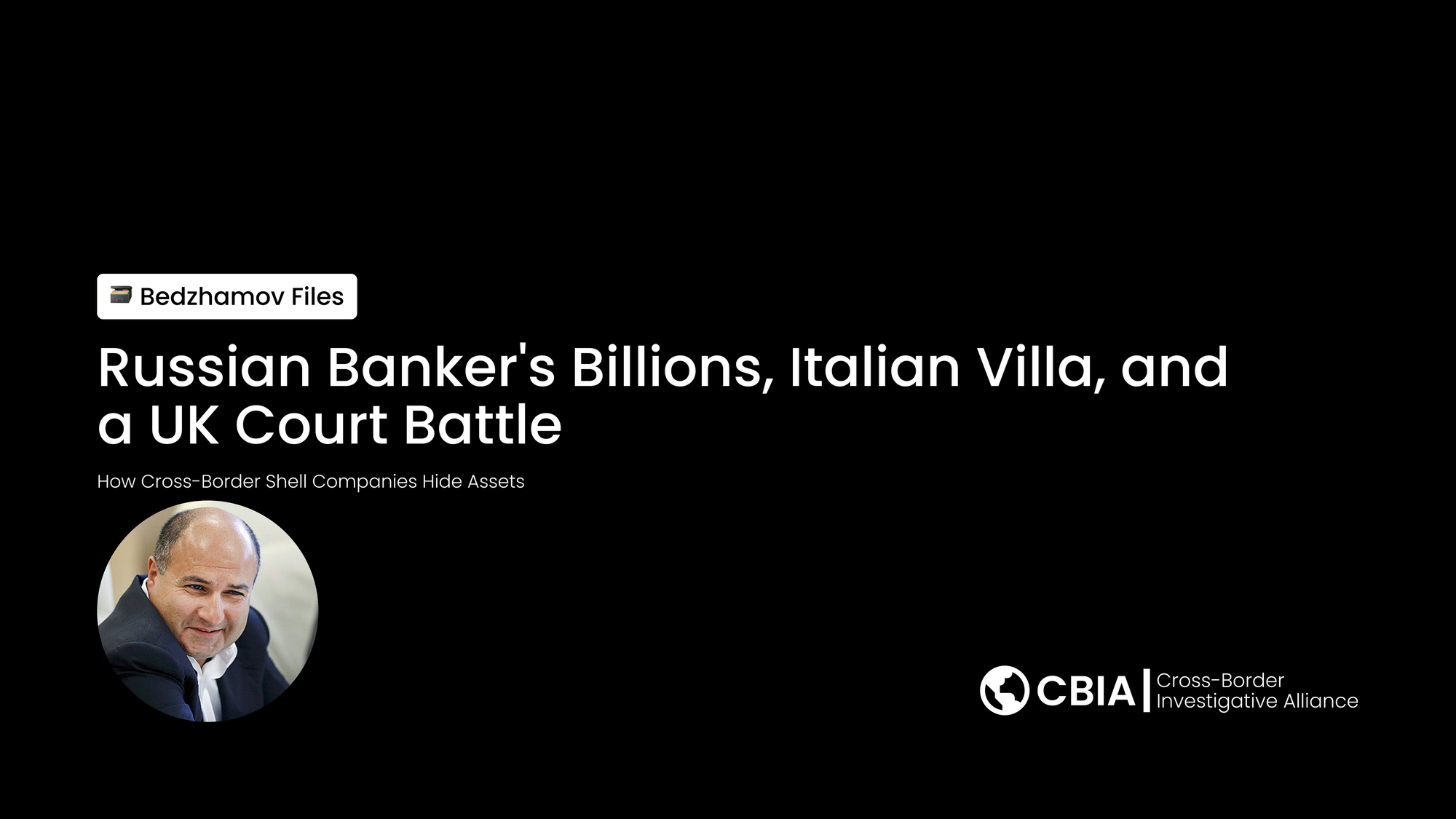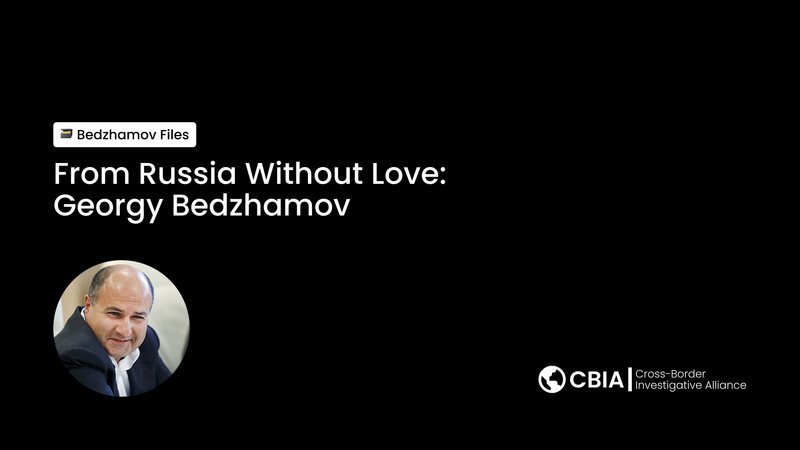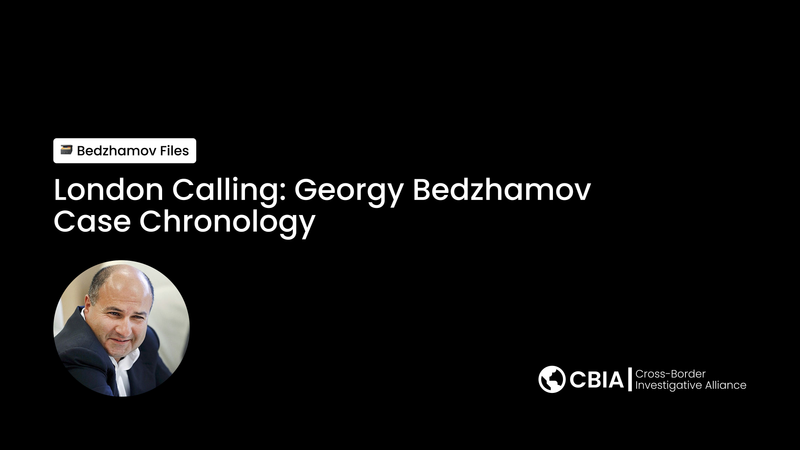Russian Banker's Billions, Italian Villa, and a UK Court Battle: How Cross-Border Shell Companies Hide Assets

In the shadowy world of international asset hiding, a high-stakes London court case has exposed the intricate web of shell companies, offshore properties, and complex legal structures used to shield billions of dollars from creditors.
At the center of this financial drama is Villa Nicolini, a valuable Italian property worth millions, owned through Basel Properties Limited, a UK-registered company whose sole share is held by Alina Zolotova, the long-term partner of fugitive Russian banker Georgy Bedzhamov [1].
The case, Kireeva v Zolotova and Basel Properties Limited, recently decided by the UK High Court, reveals how international law enforcement and bankruptcy proceedings struggle to pierce corporate veils across multiple jurisdictions [1].
The Fugitive Banker's Empire
Georgy Bedzhamov was once a powerful figure in Russian banking, serving as the chairman of Vneshprombank before fleeing Russia in 2015 amid fraud allegations worth billions. His sister, Larisa Markus, the bank's former president, is now serving a prison sentence in Russia for her role in the scandal [1].
The banker's troubles began when VTB 24 Bank pursued him for a personal guarantee related to a loan to his sister. This led to bankruptcy proceedings in Moscow's Arbitrazh Court in 2018, with Lyubov Andreevna Kireeva appointed as his trustee [1].
Bedzhamov has lived outside Russia since 2015, first in Monaco and then in London with Zolotova and their three children. Meanwhile, his assets have remained frozen under a worldwide freezing order worth £1.34 billion issued by the English courts [1].
The Villa Nicolini Dispute
The Villa Nicolini, located in Sant'Agnello, Italy, represents a classic example of how high-value assets can be held through layered corporate structures. The property is owned by Basel Properties Limited, a UK company whose sole share was transferred to Zolotova on April 1, 2016 [1].
Kireeva, acting as Bedzhamov's bankruptcy trustee, argues this transfer was "a sham and of no legal effect," designed to defraud creditors. She claims Zolotova held the share on bare trust for Bedzhamov, making it part of his bankruptcy estate [1].
Zolotova, however, maintains that the Villa Nicolini legitimately belongs to her and has "at all times belonged to her" [1].
Cross-Border Legal Complexities
The case highlights the challenges of enforcing bankruptcy orders across international boundaries. While the Russian bankruptcy was recognized by English courts in 2022, the extent of that recognition remains contested [1].
Judge Greenwood noted that "the general rule is that the effect of recognition of a foreign bankruptcy is automatically to treat the bankrupt's movable property as having vested in the foreign trustee from the date of the bankruptcy order" [1]. However, this principle faces numerous exceptions and interpretational challenges.
The court partially struck out several of Zolotova's defenses while allowing others to proceed to trial. Particularly notable was the court's concern about litigation funding arrangements, with the judge observing that there was "at least some reason to think" the funding arrangements might be "champertous" – a form of improper financial support for litigation [2].
Sanctions and Modern Complications
The case has been further complicated by international sanctions following Russia's invasion of Ukraine. Questions have been raised about whether A1 LLC, the litigation funder supporting both the bankruptcy trustee and related cases, is controlled by sanctioned individuals [1].
Judge Greenwood noted concerns about "a scheme of concealed sanctions evasion" and observed that "sanctions law is in a state of continuing development in England" [1].
Implications for Asset Recovery
The Villa Nicolini case demonstrates how sophisticated financial actors use multiple jurisdictions to create layers of legal complexity around valuable assets. The use of UK shell companies to hold foreign real estate, combined with strategic timing of share transfers, creates significant obstacles for creditors and law enforcement.
The case also reveals tensions in international cooperation on asset recovery. While courts may recognize foreign bankruptcy proceedings, the practical enforcement of such recognition often requires extensive litigation and faces numerous procedural hurdles.
Ongoing Legal Battles
The dispute over Villa Nicolini is part of a broader constellation of related cases involving Bedzhamov, his assets, and various creditors. The Supreme Court has yet to decide on appeals related to the trustee's rights to immovable property, while separate sanctions-related proceedings continue in parallel [1].
As Judge Greenwood observed, this case involves "closely related" proceedings and parties "by arrangements that have not been openly revealed," highlighting the opacity that characterizes much of the international asset protection industry [1].
The outcome of this case will have significant implications for how English courts handle similar cross-border asset recovery disputes and may influence the development of international cooperation mechanisms for tracking hidden wealth.
Sources:
[1] Kireeva (as Trustee and Bankruptcy Manager of Georgy Ivanovich Bedzhamov) v Zolotova and Basel Properties Limited [2024] EWHC 552 (Ch), UK High Court of Justice, retrieved May 24, 2024
[2] Gatehouse Chambers Legal Analysis: "Russian trustee partially succeeds in a strike out application," retrieved May 24, 2024



